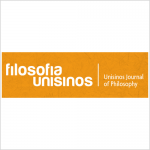The human will debate between western and Yoruba philosophical traditions
Vol 17, No 3 (2016) • Filosofia Unisinos - Unisinos Journal of Philosophy
Autor: Olanrewaju Abdul Shitta-Bey
Resumo:
Discourse on human will has a long history in the Western philosophical tradition; in fact, this history is as old as the history of Western philosophy itself. In this regard, the discourse on human will remains evergreen, with changing subject-matter from one period to another. With regard to subject-matter, the discourse on human will has significant implications for other intellectual disciplines that deal with the study of human species. As such, the paper centres on the most recurring debate in the history of the discourse on human will. The paper re-examines the various controversies that have been generated by the question whether the human will is free or not. To date, this question has had serious implications for the way we construe existence in all forms. The paper re-considers the debate within the bounds of two distinct thought-systems in the Western and Yoruba philosophical traditions. Within the context of Western thought, the paper focuses on doctrines that have evolved in the attempt to address or respond to the question whether the human will is free or not. The reason for dealing with doctrines rather than individual scholars is that it avoids the unnecessary repetition of arguments. The paper examines the works of some scholars in the Yoruba tradition who have contributed to the discourse on the fundamental question; however, these contributions misrepresent Yoruba thought. Thus, the paper argues that the question of whether human will is free or not does not arise in the Yoruba philosophical system. Analytical and phenomenological methods of research are adopted in the paper. The analytic approach is important to achieve the twin goal of explanation and clarity of concepts and issues; that is, the method will afford us the opportunity to engage with the literature and subject it to critical exposition. The phenomenological approach is significant as an interpretative tool for interrogating oral account that would properly account for the notion and conception of the human will in Yoruba thought.
ISSN: ISSN: 1984-8234
Texto Completo: http://revistas.unisinos.br/index.php/filosofia/article/view/fsu.2016.173.10
Palavras-Chave: human will,determinism, non-determinism,quasi

Filosofia Unisinos - Unisinos Journal of Philosophy
The journal Filosofia Unisinos - Unisinos Journal of Philosophy is published once every four months by Universidade do Vale do Rio dos Sinos.
Articles must be original, unpublished, and not under consideration for publication anywhere else and can be written in Portuguese, English or Spanish
Filosofia Unisinos - Unisinos Journal of Philosophy prints articles, translations and critical book reviews. It also reprints papers that are considered fundamental to the area when authorized written permission is given by the original publisher.
